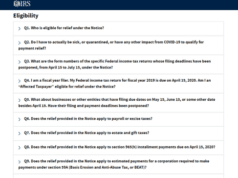
You may be wondering: What must debt collectors tell you and why? The CFPB‘s new Debt Collection Rule is going to make it a lot easier for you when dealing with creditors and their debts. The name of the creditor, amount owed as well as letting consumers know that they can dispute or seek verification on any given account has been made more clear-cut than ever before!
What Must Debt Collectors Tell You?
Debt collectors must tell you certain information about the debt they are trying to collect from you. They must give you the name of the creditor, the amount owed, and that you can dispute the debt or seek verification of the debt.
The CFPB’s Debt Collection Rule clarifying certain provisions of the Fair Debt Collection Practices Act (FDCPA) became effective on November 30, 2021. Under this rule, debt collectors must provide additional information to consumers about their rights when dealing with debt collectors.
Why Is It Important For Debt Collectors To Provide This Information?
The FDCPA protects consumers from abusive debt collection practices. The law requires that debt collectors treat consumers fairly and with respect. The CFPB’s rule is designed to help consumers understand their rights when dealing with debt collectors and to make it easier for them to exercise those rights.
What Information Must Debt Collectors Provide?
Debt collectors must provide the following information to consumers:
The name of the creditor: The name of the company to which you owe the debt should be provided so that you can identify the debt.
The amount owed: You have a right to know how much money you owe. This information can help you budget and make payments on the debt.
That you can dispute the debt or seek verification of the debt: You have a right to dispute a debt if you believe it is not yours or if you think the amount is incorrect. You also have a right to ask the debt collector to verify the debt.
What Are Your Rights When Dealing With Debt Collectors?
You have the right to:
Dispute a debt: You can dispute a debt if you think it is not yours or if you think the amount is incorrect.
Seek verification of debt: You can ask the debt collector to verify the debt. This means that the collector must send you a written notice that includes the amount of the debt like credit card debt for example, the name of the creditor, and your rights under the law.
Stop a debt collector from contacting you: There is a little-known fact about debt collectors in that you can ask a debt collector to stop contacting you about a debt. Once you make this request in writing, the debt collector may not contact you again except to say that they will not be contacting you or to notify you that they are taking a specific action, such as filing a lawsuit.
What Should You Do If You Think A Debt Collector Has Violated The Law?
You can file a complaint with the CFPB if you think a debt collector has violated your rights under the law. You can also file a lawsuit against a debt collector.
In Conclusion
What must debt collectors tell you? The CFPB‘s Debt Collection Rule clarifying certain provisions of the Fair Debt Collection Practices Act (FDCPA) became effective on November 30, 2021. Under this rule, debt collectors must provide additional information to consumers about their rights when dealing with debt collectors.
This article provides an overview of what debt collectors must tell you and why it is important for them to do so. You also have certain rights when dealing with debt collectors, including the right to dispute a debt or seek verification of the debt. If you think a debt collector has violated your rights, you can file a complaint with the CFPB or file a lawsuit against the debt collector.








